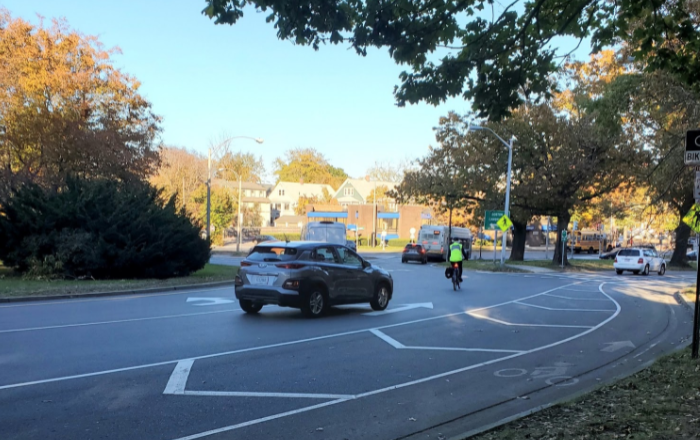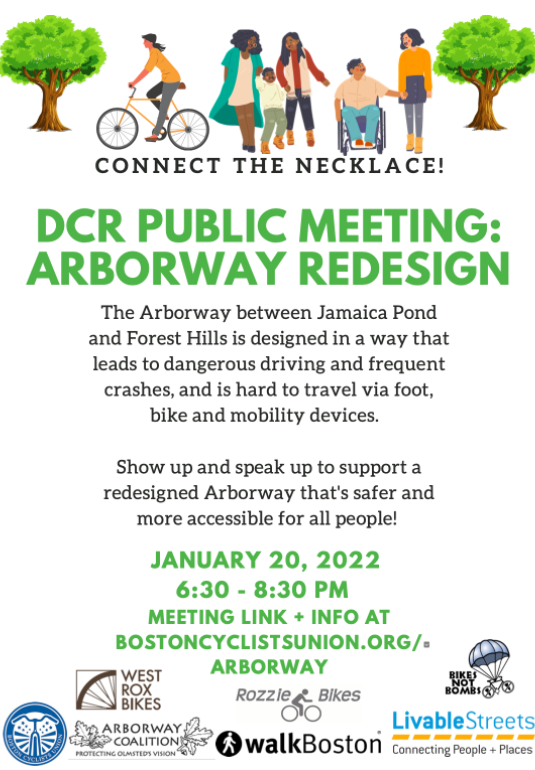Speak up for a safer Arborway!
On Thursday, the Department of Conservation and Recreation (DCR) will unveil proposals for permanent changes to the Arborway that could complete the missing bicycle link in the Emerald Necklace between Jamaica Pond and Forest Hills. We need your help to show DCR there is support for moving this project forward—show up and speak up!
Arborway Parkways Improvement Project
Thursday, January 20, 2022
6:30 – 8:30 p.m.
(virtual meeting)

Here’s how you can help us FINALLY make the Arborway safer and more accessible for all:
- Attend the public meeting— Thank DCR for advancing this process and stress the need for safety, especially for people walking and biking. Share your ideas for how to make the designs most comfortable for people traveling on bikes.
- Spread the word — Tell your family, friends and fellow cyclists to show up. Strength in numbers!
- Help us mobilize the community — We’ll be contacting BCU supporters near the Arborway through in-person outreach and phone calls. Sign up here to help us canvass people traveling along the Arborway!
- Submit written comments — Can’t make the meeting? Share your thoughts via DCR’s website until February 10th (feedback opens after the meeting). We’ll send a follow-up email with suggestions to include in your comments.
There has already been a lot of pushback to temporary changes DCR made last spring, with people raising concerns about the impact on traffic in the area. We encourage you to focus your comments on the importance of improving safety and accessibility, and to speak from your personal experience traveling here.
More background
The Arborway is one of the only parts of the Emerald Necklace that does not keep cyclists safely separated from traffic. And despite having 2 lanes of fast-moving traffic, it also has several crosswalks with no signals, making it challenging to cross the street. In late 2019, after two decades of halting attempts to address the Arborway, DCR launched a new process to improve safety for all users. The agency implemented short-term changes last spring, and is now working on permanent fixes.

